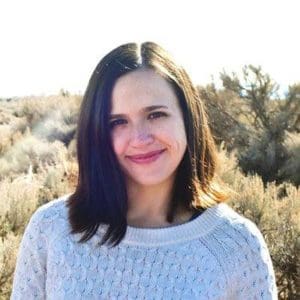How Doulas Can be Allies to LGBTQIA+ Clients
By Sarah Braun

Every June we celebrate Pride Month, giving space for LGBTQIA+ visibility and celebration of identity. Over 10 million Americans identify as LGBTQIA+ and somewhere between 2 million and 3.7 million kids under 18 years old have a parent that identifies as LGBTQIA+.
As birth workers, it’s inevitable that at some point in our careers we’ll work with clients who do not identify as straight. Keep in mind that, for many, gender or orientation might not be apparent and they might not be publicly or even privately “out.” It’s likely that we interact with individuals on a daily basis that have an identity on the LGBTQIA+ spectrum.
At the core of ally work is compassion and empathy, which are both traits that doulas already work hard to cultivate. By extending this focus to include being an ally, we can carry these practices with us everywhere, making us more aware of others’ experience and deepening our empathy. Learning how to be an ally is about self growth, committing to doing important inner work, and pushing ourselves toward the work of justice within the birth world and beyond.
So, as birth workers, what goes into being an ally? Here are 7 things you can develop, cultivate, and practice on your journey as an ally.
1. Learn about and practice cultural humility
You’ve probably heard the term “cultural competence.” The idea is to educate someone through a training or other method about a group of individuals who have a different experience of life and cultural context. You’ll find cultural competence trainings for working with refugee populations, people of color, and other marginalized groups. There are also trainings on competence for working with LGBTQIA+ folks.
This idea of competence isn’t quite enough, though. We have to bring a specific kind of attitude to our trainings and practices. When we are not a member of the group discussed in the training, we can’t ever truly gain all the knowledge and must commit to continual learning.
While it is absolutely important to take these trainings and learn as much as we can, it’s also important to cultivate a practice of cultural humility. This idea is about being teachable. We approach our clients as a humble person who can’t be the expert on another person’s experience of life. By approaching others with humility, our clients realize that we are there with the best intentions and are open to learning and being compassionate.
2. Understand that being an ally isn’t a title
Please, take all the ally trainings that you can. One thing that is confusing for many after taking these trainings, though, is that some people feel as though the training was enough for them to take on the label of “Ally.”
While it is always a great idea to identify as an ally, it’s equally important to make sure that it’s not a stagnant experience. Allyship is about incorporating cultural humility and realizing that we will always have to learn and grow in this role.
Being an ally is also about doing more than being. We have to show up, speak up, and be open to challenging our own assumptions.
3. Learn about and understand intersectionality
This is a topic being heavily discussed right now and it brings up lots of emotions for many people. But it’s an important one to explore, even as you have your own emotional reactions through the process. Stay present, be curious, and resist becoming offended or defensive.
Being an effective ally to others means always pushing yourself through those hard emotions and realizing that important work can’t happen unless you’re at least a little bit uncomfortable.
So what’s intersectionality? Entire articles and books could be (and have been) written about these topics. (I encourage you to check them out.)
The basic idea behind intersectionality is that individuals experience oppression at different intersecting points. So, for example, one individual may identify with the issues and experiences of poverty, solo parenting, being a person of color, and identifying as LGBTQIA+.
While each one of these experiences might be a significant challenge for anyone, it can compound the amount of discrimination and social struggle that a person experiences when they have multiple experiences that aren’t part of the social “norm.” It’s also important to realize that each of these identities influences the others. That individual’s experience is unique (which is where cultural humility becomes such an asset in our practices of being an ally).
4. Be willing to educate yourself
It’s tempting to ask an LGBTQIA+ individual all of those questions you’ve had floating around in your head for years. But resist that feeling and turn to education instead. It can be challenging to be part of a minority group that constantly deals with floods of questions (many of them quite rude). It’s exhausting to live through the experience and to then also have to educate others.
Take the time to answer your questions through workshops, trainings, and discussions with professionals. Always seek out knowledge and share that knowledge with others who also want to know how to be a better ally.
5. Ask questions, but know which questions are appropriate
While you shouldn’t expect an LGBTQIA+ person to be your educator, it is appropriate to ask certain questions in your consultations with clients, of course. But keep in mind that it’s important to show respect, to consider personal experience, and to compassionately understand an individual’s needs.
Don’t be afraid to ask for clarification. But make sure that your questions are truly relevant to your job as a doula, not just a curiosity. Learn how to phrase those questions in as sensitive way as you possibly can. Know when to back off and how to let your client lead the conversation.
6. Wear humility on your sleeve and always be willing to apologize
One of the most important parts of being an ally is to realize that you’re always going to be learning and growing, so inevitably you’ll make mistakes. It’s important to learn the lessons from the mistakes while still being kind to yourself. It’s normal to say the wrong thing sometimes and important to make a mental note of how to do it better in the future.
The crucial part of making a mistake is to always apologize. It’s beneficial to admit the misunderstanding and to ask how to mend the situation. This can potentially turn a hard situation into an opportunity for your client to feel more empowered.
7. Educate others so they can be better allies too
One of the most important parts of ally work is sharing what you know with others so they can potentially become better allies too. Find respectful ways to share the information and support local educational events and trainings. Also be willing and diligent about updating and refining the information over time. Hold each other accountable and commit to creating safe space for clients.
By sharing in the burden of education, we can lift some of the burden off the backs of those who identify as LGBTQIA+. This can help to make society a more friendly and understanding space. It can also create more safety, reducing the trauma and danger that many of these individuals experience.
Being an Ally is a Life’s Work
Perhaps you’ve already noticed, but becoming and growing as an ally to LGBTQIA+ folks involves lots of personal growth and inner work. This, of course, extends to other areas in our lives and can benefit our work with our other clients, as well as our personal lives. Becoming an ally is a life’s work and should extend to other marginalized groups that you work with. By broadening your understanding of others’ experience of life, you can more meaningfully support them, help to create safe spaces, and set a standard in the doula world for compassionate practice.
There are several incredible resources available for those who want to learn more. Here are some great places to get started:
Resources
Video: Cultural Humility
Article: Fluid and imperfect ally positioning: Some gifts of queer theory
Article: Dimensions of Gender
Article: Trans 101
Website: Culturally Connected
Website: Intersex Society of North America
Website: Birth for Every Body
Guide: An Ally’s Guide to Terminology
Guide: LGBTQ Family Fact Sheet
Quiz: How Privileged Are You?
Online Training: Providing Culturally Sensitive Care for LGBTQ Families
Webinar: Caring for Transgender and Genderqueer Clients with Cultural Humility
Presentation: Midwifery Care for Every Body
Information and Online Trainings: Queer Birth Project
About Sarah:

